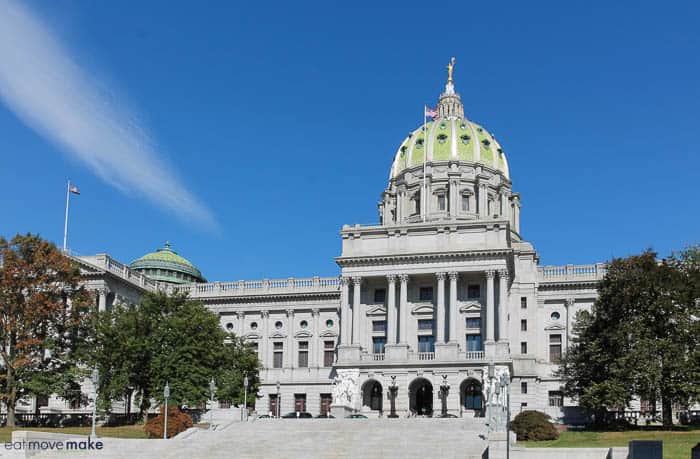Taxation Tackles: Examining the State of Sports Betting Taxes in 2024

As the landscape of legalized sports betting expands across the United States, the conversation inevitably shifts toward one of its most critical aspects: taxation. The year 2024 finds us at a pivotal moment where states are not only grappling with the legalization and regulation of sports betting at Online Casinos in Pennsylvania but also with how to tax it effectively. This complex terrain involves balancing the need for revenue with the desire to foster a competitive and responsible betting industry. This article delves into the state of sports betting taxes in 2024, exploring the varying approaches states have taken, the challenges faced, and the potential road ahead for policymakers and stakeholders.
The Patchwork of Taxation Policies
In 2024, the United States presents a patchwork of sports betting taxation policies, reflecting the diverse priorities and economic conditions of individual states. Tax rates on sports betting revenue range widely, from single-digit percentages in some states to over 50% in others. This variance is not just a matter of numerical difference but significantly impacts the competitiveness of the market, the ability to combat illegal betting operations, and the revenue generated for state coffers.
Revenue Generation vs. Market Competitiveness
States with higher tax rates tout the substantial revenue that sports betting brings to fund public services, from education to infrastructure. However, there’s an ongoing debate about the long-term sustainability of high tax rates, as they may stifle competition, discourage operator entry into the market, and inadvertently bolster illegal betting markets that offer better odds and payouts due to their tax evasion.
Conversely, states with lower tax rates aim to encourage a competitive legal market, hoping to maximize overall participation and, by extension, tax revenue over time. These states bank on the idea that a robust, competitive market will gradually erode the illegal betting market, secure consumer protections, and ultimately generate a steady stream of revenue through volume.
Addressing the Challenges
Regulatory Overheads and Compliance Costs
One of the primary challenges in taxing sports betting is the regulatory overhead and compliance costs associated with operating in a legalized market. These costs can be significant and, when combined with high tax rates, may deter operators from entering the market or push them to pass these costs onto bettors, potentially driving consumers back to the untaxed, unregulated market.
Adapting to Mobile and Online Betting
The explosive growth of mobile and online betting platforms presents both opportunities and challenges for taxation. While these platforms significantly expand the market’s reach, they also complicate taxation and regulation, particularly with bets placed across state lines. States are thus exploring interstate compacts and consistent regulatory standards to effectively tax and regulate this evolving landscape.
Tax Allocation and Public Perception
How states allocate sports betting tax revenue significantly influences public perception and acceptance of legalized betting. States that direct funds to popular public services like education, problem gambling support, and infrastructure projects tend to garner more public support. However, transparency in how these funds are allocated and their actual impact is crucial for maintaining public trust and support for sports betting taxation.
The Road Ahead
As we look toward the future, several key trends and considerations are likely to shape the evolution of sports betting taxes.
Harmonizing Tax Rates and Regulations
The significant variance in tax rates and regulations across states creates a fragmented market that can hinder the growth of legal sports betting and complicate interstate operations. A movement towards harmonizing these aspects, possibly through federal guidance or interstate compacts, could help create a more unified and competitive market.
Leveraging Technology for Compliance and Enforcement
Advancements in technology offer promising solutions for enhancing compliance and enforcement of tax laws in the sports betting industry. Blockchain technology, for instance, could provide a secure, transparent way to track betting transactions and ensure accurate tax reporting and collection.
Focusing on Responsible Gambling
As the sports betting market grows, so does the importance of addressing problem gambling. States are increasingly recognizing that a portion of sports betting tax revenue must be allocated to support responsible gambling initiatives. This not only helps mitigate the social costs associated with gambling addiction but also supports a sustainable, ethical sports betting industry.
Economic Impact Studies
Ongoing studies and assessments of the economic impact of sports betting taxes are crucial for informing future policy decisions. These studies can provide valuable insights into how tax policies affect market competitiveness, revenue generation, and the illegal betting market. They can also guide adjustments to tax rates and regulatory frameworks to maximize benefits for both the state and consumers.
Wrap Up
The state of sports betting taxes in 2024 highlights the complexities and challenges of regulating and taxing an industry that is both lucrative and fraught with potential pitfalls. The diverse approaches taken by states reflect a balancing act between generating revenue, ensuring a competitive market, and promoting responsible gambling. As the industry continues to evolve, so too will the strategies for taxing and regulating it. The road ahead will require adaptability, innovation, and a commitment to safeguarding the public interest while capitalizing on the economic opportunities sports betting presents.
















